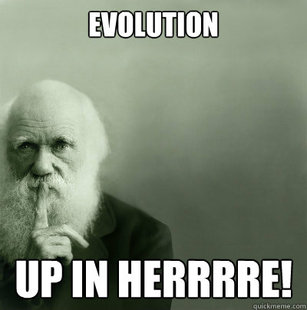Freedom of expression is a principle which states that the individuals of a state may speak, write or publicize messages freely. The limitation is that the messages sent by individuals cannot lead to incitement of violence or crime. This limitation is obviously disputable as causal links are not explicitly known, discussions on this limitation are not relevant at the present time.
This principle carries legal power and this power differs in various states around the world. Generally speaking in western countries such as Great Britain and the U.S.A the law around this principle is similar. Individuals and companies can express themselves freely without worrying about offence (legally, ignoring some racial cases) and they can publish their opinions on the government, its officials and the happenings of the state.
Various magazines, pornography, numerous television shows and newspapers thrive on this principle, that is, without having the ability to express freely these shows would either be stopped by the state (due to their negation to policies or their ill influence on the people) or would be too boring to thrive economically.
John Stuart Mill proposed that freedom of expression of individuals is intrinsic to their individual freedom. He offers very reasonable and insightful arguments in favor of this claim. However there may be an argument for the protection of freedom of expression without appealing to morality. We could appeal to utility and how freedom of expression acts as a selection sieve for memes in the 'meme pool', and how this sieve speeds up the process of selection and therefore speeds up culture and intellectual progression.
Let's re-paint our picture of memes and the meme pool... which are just re-named jargon for ideas and culture. We use the word meme for idea and meme pool for culture not to confuse ourselves, we use them to remind ourselves that ideas could perhaps act like genes and they could also take part in a very similar process we commonly know as... natural selection. In
http://newphysicistphi.blogspot.co.uk/2012/01/memes-survival-of-ideas.html 'Memes: The Survival of Ideas' I propose that the meme pool contains memes which act as the super-meme, they act as a sort of abstract monopoly. For example I outlined how religion and fundamentalism acted like super-memes in the past, ideas which contradicted or threatened this super-meme would not succeed in copying itself or adapting itself to the meme pool. I also argued how science was a meme which arose which went against the super-meme, it gradually spread throughout the meme pool due to its success in aiding humans understanding and manipulation of the world (memes which most encourage physical benefits within humans are greatly favored as it most definitely aids gene survival). Science became the new super-meme which over time would change the face of the meme-pool.
Back to freedom of expression... what does this do in the meme-pool? Well humans who are free to speak would converse more about their true opinions on important ideas, or just general ideas (like the best club to go too), if we focus on the important ideas we see that public debates, television shows, newspaper articles etc. publicly show humans talking about these ideas either with conflicting views or general discussions. These debates spread through screens to people homes and influence their own memes and would stimulate home debates. This microscopically translates to collisions of memes and meme activity as more memes are able to come into 'intellectual' contact. Over time this activity will lead to some memes dying out or some memes succeeding (for example feelings on disabled people may have greatly changed after paralympics due to tv talks and hence home debates). For instance a meme embodying prejudice or 'bad' feelings for disabled people may be quickly eradicated due to meme activity encouraged by freedom of expression.
This freedom of expression would lead to increase in meme activity and selection processes, we would hope in thinking that this would lead to improvements in our culture, science and general intellectual nature. Looking at states where freedom of expression are encouraged we see that this translates to economic success and scientific and moral developments.
We must remember that 'freedom of expression' is a meme itself. It is succeeding in meme pools where the super memes are of a rational, modern and scientific nature, as science and reason encourage open debates of research, contentious issues and any problem as problems are solved through discussion and experiment.
If 'freedom of expression' meme helps promote the super meme i.e. science and science helps humans then it logically follows that freedom of expression would help humans as a species.
This meme would not work where religion, traditionalism and totalitarianism are quite powerful in the meme pool (such as North Korea and Eastern Nations) as freedom of expression could lead to questioning of authority of the state or of religious authority. This negates dictatorship, indoctrination and authority which are the tools religion etc. use to keep themselves dominant in the meme pool.







